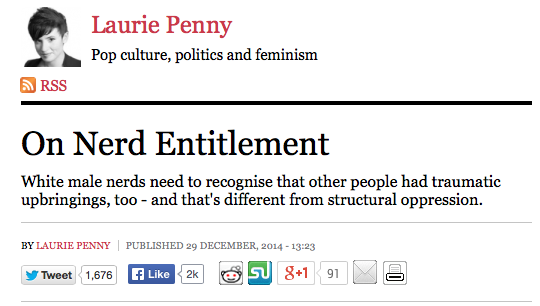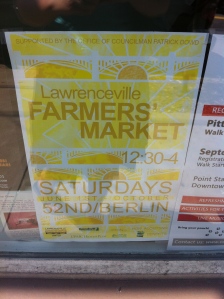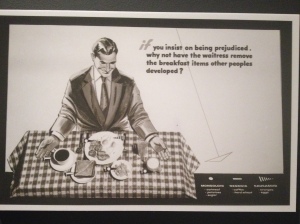Who among us hasn’t turned a blind eye to our own faults? Who among us hasn’t known or suspected that we were acting badly, but never taken the time to contemplate it? Don’t so many of us think better of ourselves than we deserve, need help finding a better path, or hurt others without thinking?
Assuredly. And so, thank goodness for the High Holy Days, the two days…or ten days…or month and a half Jews are asked and encouraged to reflect on our faults and sins, all the ways we’ve fallen short, to confess and ask for forgiveness, both from others and from God, all in the hopes that we will be written in the Book of Life, and secured for another year.
But what of us who reflect on our faults throughout the year, and not just during the Days of Awe? Every month, or every day, or all the time? Who are susceptible to scrupulosity, or simply excessive self-criticism and blame? What if you already don’t like some or all of the person you are? What do we do with the High Holidays? To borrow from another holiday, why should these days be any different from any others?
When you are keenly aware of your faults, when you notice when you do wrong, and think you do wrong more than you do, when you’ve worked on worrying *less* about your flaws, what are you supposed to do during this time, how are you supposed to feel?
Appropriately for a Jewish question, there are approximately 613 possible responses.
Here are some of mine, based on what I struggle with.
Excessive self-blame, it turns out, isn’t actually mutually exclusive with doing things wrong. Feeling overwhelmed by guilt isn’t an excuse for not facing our faults and striving to do better. The High Holy Days are a good time for that.
In fact, the excessive guilt thing isn’t all that Jewish at all (though, that’s the kind of thing that could make someone in this mindset feel even worse about themselves). “You are not required to finish the work, but neither are you free to desist from it.” To drown or wallow in self-recrimination prevents us from actually taking positive steps to improve and do better.
One of those positive steps is asking for forgiveness, one of the most powerful things I do on a regular basis as a part of being Jewish. It’s a way to move forward, a positive step, that doesn’t involve weaponizing weakness or talking about how horrible you are. It’s a way of focusing on others, not yourself.
Focusing on how you, yourself, have done wrong is part of the process, but not all. Ashamnu, the confessional prayer, is stated in the collective. We have gone astray, we have given bad counsel, we have rebelled. It’s not about you. We have all done wrong, and we stand together to ask for forgiveness. And we have probably all done many of the things on that list, so we are not alone. But we haven’t done all the things on that list, so we are standing in solidarity with others who have done wrongs we have not, and so they are standing for us, and our wrongs.
On Kol Nidre, the evening service on Erev Yom Kippur in which we renounce all our vows, we say, admit, that we will be saying the same thing next year. It might be mightily depressing, to think that inevitably, another year of sins will accrue. Even in the time that we are most fixated on changing our ways, our focus drifts to the ways we’ll fall short. But the inevitability of failure should also be a comfort, to know that we are all flawed, and our tradition accounts for that. It, or God, doesn’t expect us to be perfect.
Not only does our tradition know we will fail and falter and fall short, but it has a process in place for us. This might make it worse (if you’re the anti-inductive type); why do it all if you know you’re bound for failure? I happen to like the finiteness of the process and how much is externally ordained. You do the right things, in the right order, and it might not make it better, but then it’s over. You don’t have to think of what the right things are, they’re right there in your machzor, or in your family tradition. You pray, or think, or reflect; you ask forgiveness, connect with those around you; you confess; you try to do better.
Believing in God might make things worse. Perhaps for his anger, jealousy and viciousness, his demands on our thoughts and behavior. Or, oppositely, because he is the moral arbiter, a Judge, and our King, and we are being held to account in ways we might wish we weren’t. After all, we are told in the Unetanah Tokef that God plans the manner of our deaths at the same time he counts up our sins.
Not believing might make things worse. If there’s no God to keep us accountable, what’s the point? If there’s no god to love us, how do we escape from our self-hatred? Having god in your life can be a comfort and a help, whether the model is of a monarch or a parent, a judge or a caregiver, or something else besides. We are lucky (others might say blessed) to be part of a religion uniquely accepting of atheism and doubt).
But a situation which is lose-lose is also a win-win, so maybe we can feel lucky for what we do get, atheist or believer: the comfort of boundaries or the joy of freedom, ethics divinely inspired or humanistically molded. God will think of our good deeds as well as our bad, and look upon us mercifully. We can do the same, and recall our achievements as well as our faults. We are made of dust, but we are also made in the image of God.
Whatever helps you, the following are true:
Yes, you’ve sinned, but here you are, atoning.
Yes, we’ve sinned, and we have time to do better.
Yes, you’ve sinned, but it’s not all on you.
Yes, we’ve sinned, and our community stands together to proclaim it.
Yes, you’ve sinned, but maybe not as much as you think.
Yes, we’ve sinned, and will sin again, but maybe we will get to make new mistakes instead of old ones.
Yes, you’ve sinned, but still you are loved.
Yes, we’ve sinned, and you can ask for forgiveness.
Yes, you’ve sinned, and so what?
Yom Kippur will come regardless.
It might be difficult or easy, painful or lovely, empty or meaningful. I hope the latter for all of you, but the former are just as fair and legitimate.
I will be praying and fasting and atoning and self-berating and apologizing and hurting. It will be hard. I will prostrate myself and beat my chest and feel the fear and agony of the gates of heaven closing.
And then they will close. And then it will be evening and morning, a new day.

 Even the
Even the 




















